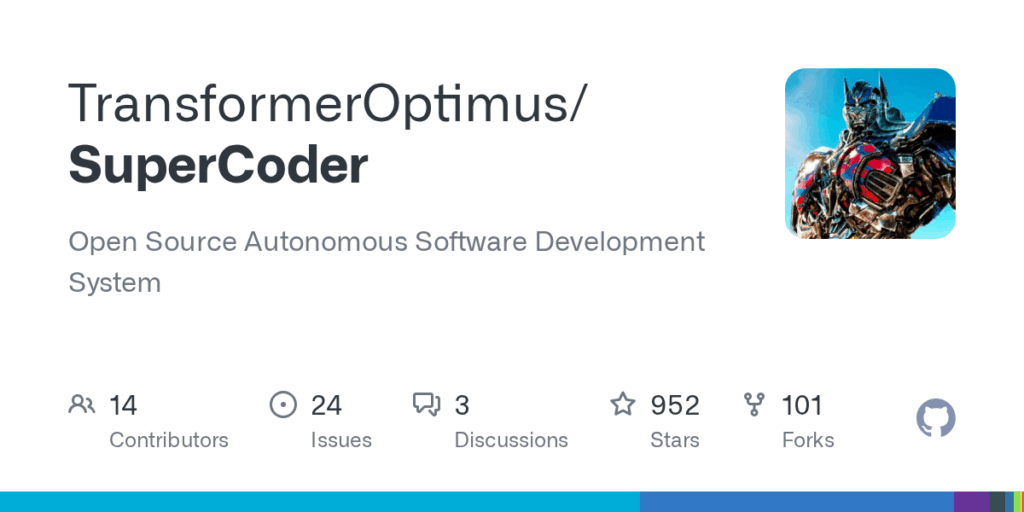SuperCoder
Basic Information
SuperCoder is an open source autonomous software development system that uses AI-driven agents and tooling to automate software engineering workflows. The repository bundles components to assist with coding, testing, and deployment tasks by orchestrating agents and services rather than requiring manual step-by-step operations. It targets multi-stack development workflows and provides a local development setup that includes a Go server, background worker (Asynq), and a Postgres database. The project is presented as an end-to-end system with a web UI and instructions to run the system with Docker Compose. The README emphasizes ongoing development status and points users to community support channels and learning resources.
Links
Stars
953
Github Repository
Categorization
App Details
Features
The README highlights agent-based automation for coding, testing, and deployment tasks and explicit support for multiple web frameworks and languages with icons for Flask, Django, and NextJS. The repository provides a Docker Compose based setup to build and run a Go server, an Asynq worker, and Postgres for persistence. A web UI is included and exposed on localhost:3000 when running the stack. The project includes links to documentation, blog posts, a how-to start guide, and community channels such as Discord for support. The README also notes active development and an issues workflow for reporting bugs or requesting help.
Use Cases
SuperCoder helps teams and developers by automating repetitive parts of the software development lifecycle so engineers can focus on higher-level design and review. It centralizes orchestration of agents to generate, test, and deploy code across supported frameworks, provides a local runnable environment via Docker Compose, and persists state with Postgres while using an Asynq worker for background tasks. The integrated web UI provides a point of interaction for workflows. Community resources, documentation, and active issue tracking are provided to lower onboarding friction. The project’s active development status signals ongoing improvements and community-driven support for adoption and troubleshooting.








